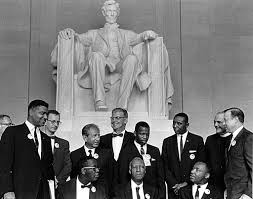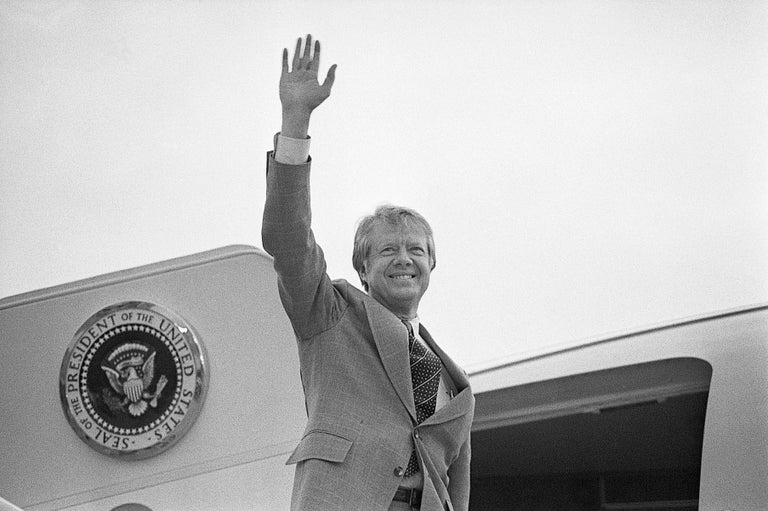Martin Luther King Jr. was one of the most influential figures in American history, recognized worldwide for his tireless advocacy of civil rights, equality, and nonviolence. As a preacher, activist, and leader, King became the face of the American Civil Rights Movement in the 1950s and 1960s. His legacy continues to inspire generations in the fight for social justice and equality. In this article, we will explore the life, philosophy, contributions, and lasting impact of Martin Luther King Jr. on both American society and the world.

Early Life and Education
Martin Luther King Jr. was born on January 15, 1929, in Atlanta, Georgia, to Martin Luther King Sr. and Alberta Williams King. His birth name was Michael King Jr., but his father, after attending a conference in Germany, changed both his own name and his son’s name to Martin Luther in honor of the German Protestant reformer, Martin Luther.
King’s early life was deeply shaped by the teachings of his father, who was a Baptist minister and a strong advocate for social justice. His mother, Alberta, was also a significant influence on King, providing a nurturing and supportive environment. King grew up in a relatively well-off household compared to many African American families in the segregated South, but he still experienced the harsh realities of racial discrimination.
King attended Booker T. Washington High School in Atlanta, where he was an intelligent and thoughtful student. He skipped both the 9th and 12th grades, graduating at the age of 15. King then attended Morehouse College, one of the leading historically black colleges in the United States. It was at Morehouse that King was exposed to the ideas of social change and justice. He was influenced by his mentor, Dr. Benjamin Mays, a prominent theologian and social activist who encouraged King to view religion and social activism as inseparable.
King graduated from Morehouse with a degree in sociology in 1948. He then went on to Crozer Theological Seminary in Pennsylvania, where he earned a Bachelor of Divinity degree in 1951. His time at Crozer was marked by significant intellectual development, as King read widely in philosophy, theology, and social issues. It was also during his time at Crozer that King began to deeply reflect on the ideas of Mahatma Gandhi, the Indian leader who championed nonviolent resistance against British colonial rule. Gandhi’s ideas would later become a central element of King’s own philosophy of nonviolence.
After completing his education at Crozer, King pursued graduate studies in theology at Boston University, where he earned a Ph.D. in systematic theology in 1955. It was in Boston that King met Coretta Scott, a fellow student who would later become his wife. They married in 1953 and had four children: Yolanda, Martin III, Dexter, and Bernice.
The Montgomery Bus Boycott
The turning point in Martin Luther King Jr.’s life came in 1955 when Rosa Parks, an African American woman, was arrested for refusing to give up her seat to a white person on a segregated bus in Montgomery, Alabama. The incident sparked outrage in the African American community, and a boycott of the Montgomery bus system was organized. King, who had recently become the pastor of the Dexter Avenue Baptist Church in Montgomery, was chosen to lead the boycott.
King’s leadership during the boycott demonstrated his remarkable ability to inspire and organize people. Under his leadership, the boycott lasted for more than a year, during which African Americans refused to use the city’s buses, demanding an end to segregation on public transportation. The boycott also brought national attention to the issue of racial segregation and discrimination in the South.
The boycott was not without its challenges. King and other leaders faced violent threats, and King himself was arrested on several occasions. In addition, the boycott leaders faced economic pressure, as the bus company relied heavily on African American riders for its revenue. Despite these challenges, the boycott ultimately proved successful. In December 1956, the U.S. Supreme Court ruled that segregation on public buses was unconstitutional, marking a significant victory for the civil rights movement.
Nonviolent Philosophy and Civil Rights Leadership
One of King’s most enduring contributions to the civil rights movement was his commitment to nonviolent resistance. Influenced by the teachings of Mahatma Gandhi, King believed that nonviolence was the most powerful weapon in the struggle for social justice. He argued that nonviolent protest was not only a morally superior approach but also a strategic one, as it could expose the brutality of racism and win sympathy for the cause of civil rights.
King’s philosophy of nonviolence was grounded in his Christian faith, which emphasized love, forgiveness, and the dignity of all people. He drew on the teachings of Jesus Christ, particularly the Sermon on the Mount, to develop his approach to social change. King also believed that nonviolence had the potential to transform not only society but also the individuals who practiced it, leading to personal and spiritual growth.
King’s commitment to nonviolence was put to the test during the 1960s, as he led numerous protests and marches against racial segregation, disenfranchisement, and economic inequality. One of the most notable of these was the Birmingham Campaign in 1963. The campaign was launched to desegregate public facilities in Birmingham, Alabama, one of the most racially divided cities in the United States. King and other activists were met with violent opposition from local authorities, who used fire hoses and attack dogs against the protesters. Despite the brutality they faced, the protesters remained nonviolent, and their courage eventually led to a desegregation agreement in Birmingham.
Another key event in King’s leadership was the 1963 March on Washington for Jobs and Freedom. The march, which drew more than 250,000 people to the nation’s capital, was a powerful demonstration of the demand for civil rights and economic justice. It was here that King delivered his most famous speech, the “I Have a Dream” speech, in which he articulated his vision of a racially integrated and just America. King’s speech, with its powerful imagery and call for equality, became a defining moment in the civil rights movement and is still widely quoted today.
In addition to his work on racial equality, King was also deeply concerned with issues of poverty and economic justice. He believed that the fight for civil rights was inseparable from the fight for economic justice, and he advocated for policies that would address the systemic inequalities that plagued poor communities, both black and white. King’s economic vision culminated in the Poor People’s Campaign, which sought to address issues such as unemployment, housing, and access to healthcare.
The Struggle for Voting Rights
One of the most important goals of the civil rights movement was the enfranchisement of African Americans, particularly in the South, where discriminatory practices like literacy tests and poll taxes kept many black citizens from voting. King was a key leader in the fight for voting rights, and his efforts culminated in the 1965 Selma to Montgomery marches.
In Selma, Alabama, African Americans were systematically denied the right to vote, and the local police and political authorities used violence and intimidation to prevent black citizens from registering to vote. In response, King and other leaders organized a series of marches from Selma to the state capital of Montgomery. The first march, which took place on March 7, 1965, was met with violent repression by state troopers, who attacked the marchers with clubs and tear gas. The brutality of the police response sparked national outrage and galvanized support for the movement.
On March 21, 1965, King and thousands of marchers successfully completed the march to Montgomery. Their efforts helped lead to the passage of the Voting Rights Act of 1965, one of the most important pieces of civil rights legislation in American history. The act prohibited racial discrimination in voting and ensured that African Americans could exercise their right to vote without facing discriminatory barriers.
Opposition and Challenges
Despite his many achievements, King faced significant opposition throughout his career. Many white Americans, particularly in the South, saw him as a threat to the status quo and were hostile to his calls for social change. King was frequently criticized by conservative politicians and white supremacist groups, who sought to undermine his efforts through violence, propaganda, and intimidation.
In addition to the external opposition, King also faced criticism from some within the African American community. Some civil rights activists, such as Malcolm X and members of the Black Power movement, believed that King’s commitment to nonviolence and integration was misguided. They argued that African Americans should pursue more radical approaches to achieving equality, including the use of force if necessary.

King’s commitment to nonviolence and his willingness to work with white allies also led to tensions within the civil rights movement. Some younger activists were frustrated by what they saw as King’s cautious approach and his emphasis on negotiation and compromise rather than confrontation. Despite these challenges, King remained steadfast in his belief that nonviolence and peaceful protest were the best means of achieving lasting social change.
The Assassination of Martin Luther King Jr.
On April 4, 1968, Martin Luther King Jr. was assassinated in Memphis, Tennessee. King had traveled to Memphis to support a strike by African American sanitation workers who were seeking better wages and working conditions. He was standing on the balcony of his hotel room when he was struck by a single bullet fired by James Earl Ray, a white man with a criminal background.
King’s assassination shocked the nation and sparked widespread protests and riots in cities across the United States. His death marked the end of an era in the civil rights movement, but his legacy lived on. King’s assassination also underscored the deep divisions in American society, particularly regarding race and inequality.
In the wake of King’s death, the federal government passed several key pieces of civil rights legislation, including the Fair Housing Act of 1968, which prohibited discrimination in housing. However, King’s vision of a racially integrated and economically just society remained an unfinished goal.
Legacy
Martin Luther King Jr.’s legacy is profound and enduring. His commitment to justice, equality, and nonviolence has influenced movements for civil rights and social change around the world. King’s leadership in the American Civil Rights Movement led to significant legislative victories, including the Civil Rights Act of 1964 and the Voting Rights Act of 1965, which dismantled legal segregation and expanded the rights of African Americans.
Beyond his political achievements, King’s moral and spiritual vision continues to inspire individuals and organizations committed to justice and peace. His advocacy for nonviolent resistance has been adopted by leaders of various movements for social change, including those fighting apartheid in South Africa, advocating for women’s rights, and working for economic justice.
King’s message of love, hope, and reconciliation remains relevant today, particularly in the face of ongoing racial tensions, inequality, and injustice. His belief in the power of ordinary people to effect social change continues to resonate, and his vision of a “beloved community” offers a hopeful path forward for those working to create a more just and inclusive world.
In recognition of his contributions to American society, Martin Luther King Jr. has been honored in numerous ways. His birthday, January 15, is celebrated as Martin Luther King Jr. Day, a national holiday in the United States. The Martin Luther King Jr. Memorial, located on the National Mall in Washington, D.C., serves as a testament to his life and work.
Conclusion
Martin Luther King Jr. was more than just a leader of the civil rights movement; he was a visionary who challenged the nation to live up to its ideals of freedom, equality, and justice. Through his commitment to nonviolence, his eloquent speeches, and his unwavering dedication to social change, King transformed the landscape of American society. While the struggle for racial equality and social justice continues, Martin Luther King Jr.’s legacy remains a guiding light for all who work to create a more just and compassionate world.




